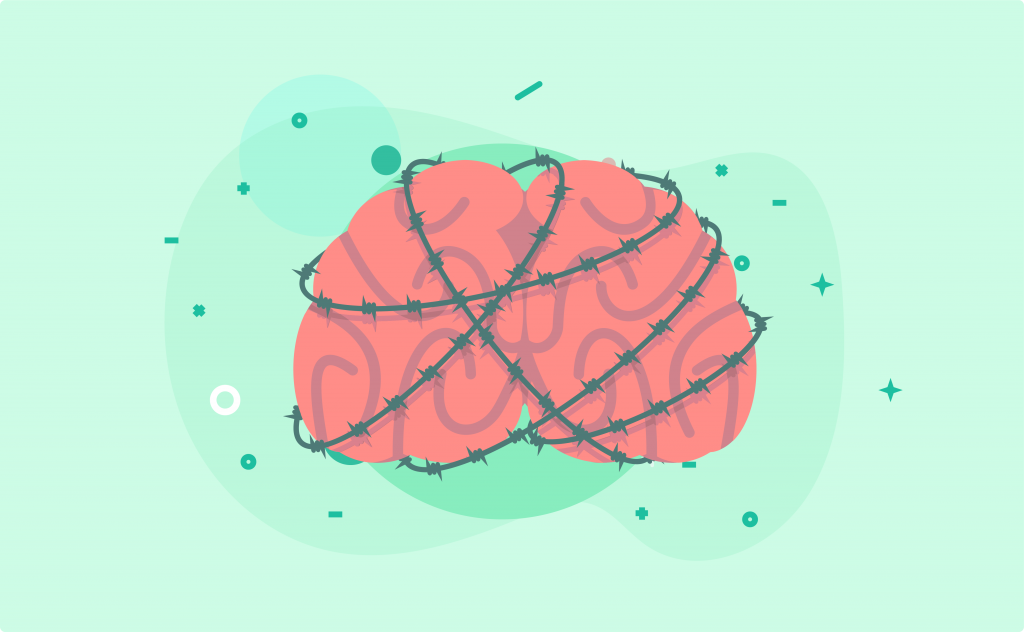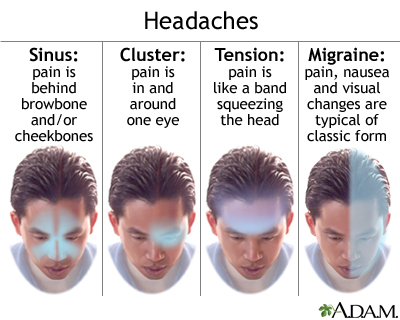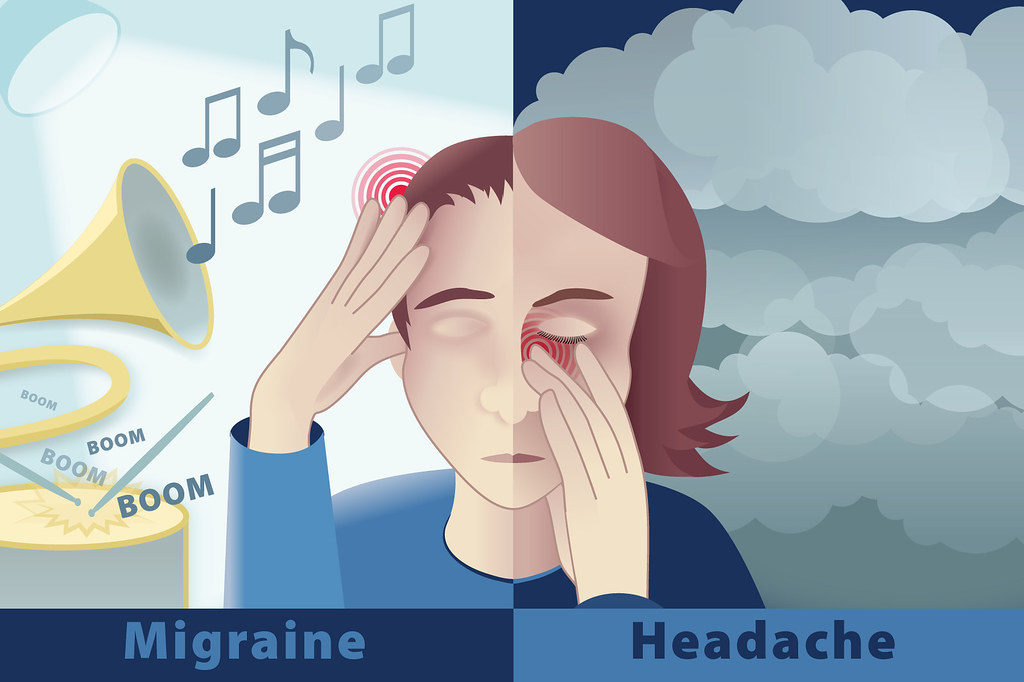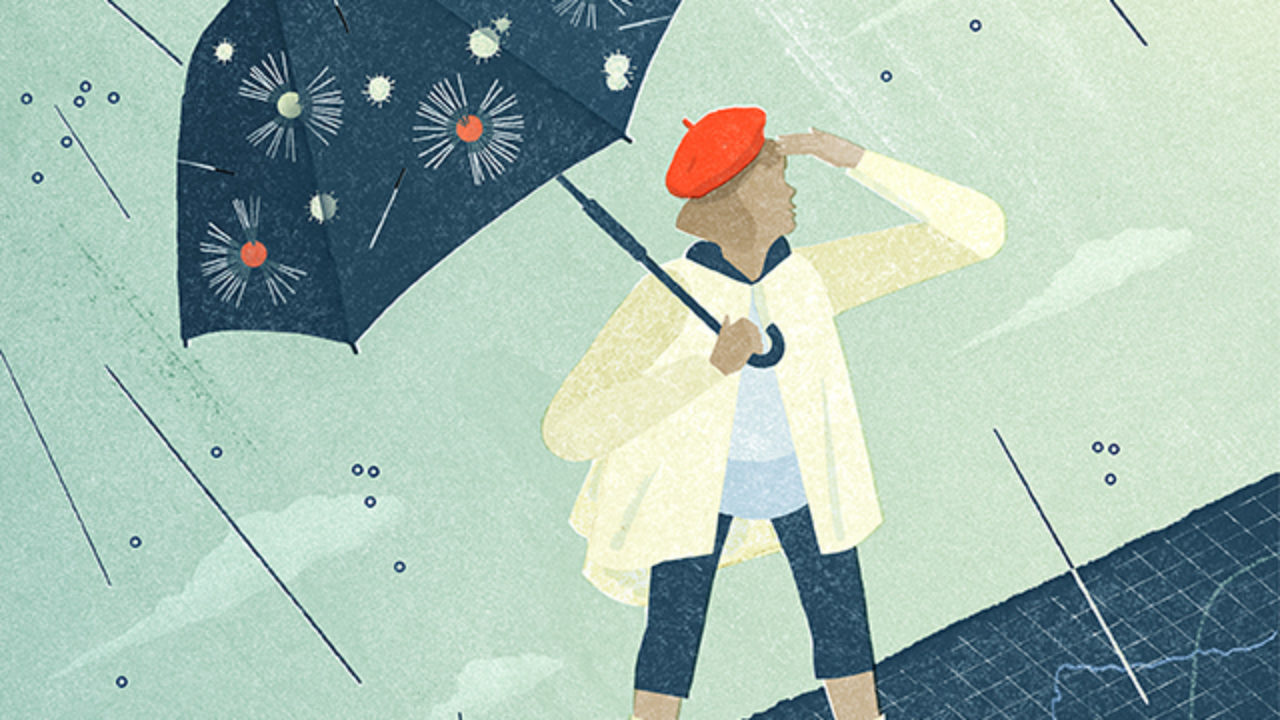
Almost every person has or will experience a headache in their life. Migraines are also common with 1 in 7 adults in the world affected by a migraine. Also, headaches and migraines most often occur in people between early teenage years to late 40s. Women are more likely to have headaches and migraines with nearly half of the global female population affected.
Acupuncture and TCM are great treatment options for headaches and migraines whether they are in the acute or chronic stages.
Headaches
Headaches broadly consist of various pains or pressure in the head. Pain can range from mild to severe and headaches can last for a couple of minutes up to a week. They most typically affect both sides of your head which is where they can differ from migraines.
Tension headaches are most common, felt around the forehead and scalp. Other forms can include cluster headaches, ice-pick headaches or sinus headaches.
Experiencing headaches occasionally isn’t a concern, but if you experience headaches frequently than you may have a headache disorder. If you get headaches for 15 or more days of the month then you are most likely suffering from chronic headaches.
Headaches do not have other symptoms normally. However, migraines do.

Migraines
A form of painful headache that comes with other side effects is called a migraine. The pain is usually felt on one side of the head (it can sometimes be both sides) and ranges from moderate to severe. What make migraines distinct are how debilitating they are and their impact on day-to-day life for sufferers.
People who experience migraines can also have symptoms of:
Another unique factor to migraines is that some people’s migraines come with stages such as prodomes and auras which are signs of an incoming migraine attack. Read more about prodome and auras here.
Some people are predisposed to migraines and can have triggers such as lifestyle or hormonal factors.
Possible causes
Possible causes for headaches and/or migraines include:
TCM perspective of headaches and migraines
There are a number of common reasons for pain in the head in TCM.
Qi
The first cause is qi flow. In acupuncture there is 6 channes in your head and depending on where your pain is can indicate where there are blockages of qi in the body. Acupuncture is then used to stimulate these channels and release the headache.
Phlegm
The next possible cause is phlegm in the system. Phlegm in TCM is a form of inflammation and when it builds up in the body, we become congested. This phlegm can trigger tension headaches, sinus headaches and migraines.

Hormones
Hormone imbalances are also a known trigger for headaches and migraines. Specifically fluctuations in oestrogen can cause headaches/migraines which is why women are more likely to experience headache disorders. TCM explains that changes in our oestrogen levels can result in low energy and blood flow, making circulation to our head more difficult and making us vulnerable to pain.
The Root Cause
Finally, in TCM headaches are usually an underlying sign of a bigger problem. Sometimes they are an indicator of hormonal imbalances, digestive issues, stress or muscle tension. Because of the complexity, it is a good idea to see a TCM practitioner in person.
Treatment options
We treat headaches and migraines according to the individual in TCM. When you see a TCM practitioner for headaches or migraines they will ask you a lot about where the pain and pressure is in your head in relation to the 6 acupuncture channels to determine your body condition.
For example, if your headache pain is in the back of your head it is related to the blood channel which can indicate the headache is due to menstruation or hormones. Or if your headache is behind your eyes this is where the liver channel is and can specify that stress is a contributing factor to your migraine.
Your practitioner will also ask what time of day does it start and finish and your other symptoms to determine your body condition. They will then diagnose and provide treatment.
Whether your headaches are acute or chronic, acupuncture and TCM can help.
Acute
Acupuncture can help you when you are experiencing the headache or migraine. It will not only help relieve symptoms such as pain, nausea, sensitivity, etc., but can help get rid of it altogether. We achieve this by, in simple terms, increasing blood flow and releasing tension in the body.
Chronic
If you experience chronic headaches or migraines then acupuncture and TCM can help manage them by targeting the underlying cause according to TCM theory. This may mean treating your digestion or improving sleep, correcting postural issues, relieving tension or boosting organ function. It can also be a combination of issues and thus we recommend regular treatment.

Tips
Keep warm – especially the back of your head, neck and shoulders to lessen tension
Avoid direct contact with wind – both indoors and outdoors (e.g. no fans blowing on you, wearing scarves outdoors, etc.)
Avoid certain types of foods – alcohol, caffeine and dairy can all add inflammation to the body
Stay hydrated –keep drinking water, preferably at room temperature or warmer
Reduce stress –find healthy ways to de-stress in your daily routine (exercise, talk to someone, meditation)

Leave a Reply